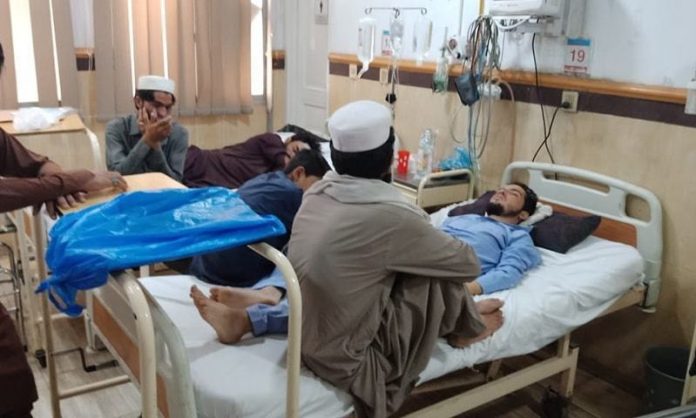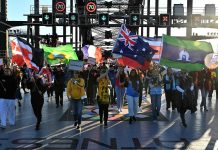PESHAWAR: The Khyber Pakhtunkhwa government has made it obligatory upon the people to seek free treatment under the Sehat Sahulat Programme in their native districts.
According to the new arrangements, only the referred patients would be entitled to avail free health services outside their own districts under the programme.
Until now, there was no bar on the SSP’s beneficiaries to get free diagnostic and treatment services out of their native districts as the programme covered 64 per cent of the population.
SSP Director Mohammad Riaz Tanoli told Dawn that the decision to prevent out-of-district services was made to avoid load on other hospitals and let the local health facilities to cater to the needs of their own population.
So far, most beneficiaries of the programme used to seek treatment in Peshawar that didn’t cause any load on the hospitals but the government extended SSP to the entire population of the province due to which it was necessary to make it binding on the people to contact the hospitals located in their own districts.
According to the plan, the government is extending the coverage of SSP to 100 per cent population of Khyber Pakhtunkhwa. The plan will be enforced in November in Malakand division, to be followed by Hazara in December, Mardan and Peshawar in January and Kohat, Bannu and Dera Ismail Khan in February.
The government has already allocated Rs18 billion to meet the annual cost of the free health insurance initiative. A total of 150 health facilities would be empaneled throughout the province to provide hospitalisation services to 6.6 million families in the province in case of need.
“For each division, we need about 20 hospitals with each of them catering to the needs of 40,000 to 50,000 families. The selection of health facilities has been completed in Malakand where the programme is being pioneered. Empanelment of hospitals is a technical process and the facilities meeting the requirements are being registered,” said Dr Riaz.
He said that many factors including location, quality of emergency services, availability of water, electricity and cleanliness situation along with doctors, equipment and quality of care were taken into consideration by panel of experts to designate hospitals for SSP.
“However, no patient will be allowed to seek free treatment outside the native district. If the patients travel to the other cities for treatment, they would be paying from their own pockets. However, those, who are referred by the doctors to major hospitals for non-availability of services, would also be given transportation charges,” said Dr Riaz.
He said that the patients requiring heart surgeries would visit big cities because of non-availability of facilities in most of the districts.
The programme, started with the support of German Bank Kiwi and covering three per cent population in four districts in 2015, was extended to 50 per cent people in 2017 and to 64 per cent population in 2018 and then the entire population of the province in July 2020.
Dr Riaz said that the beneficiaries were issued Sehat Insaf Cards on the basis of their economic status but after extension of the coverage of the programme to the whole population of the province, national identity cards would be used for treatment.
He said that an agreement would signed with National Database and Registration Authority in the current week to ensure prompt facilitation of the patients. The programme covers 100 per cent diseases.
The SSP chief said that approximately 60,000 patients were admitted to hospitals for free treatment on annual basis.








